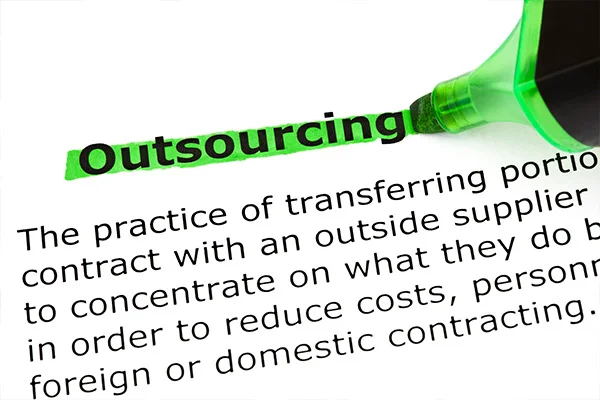Outsourcing Product Development
- Home
- Blog Details

- April 1 2019
- admin
Outsourcing development activities has become an essential component of any successful business strategy these days. As the global competitive market is gradually changing, product based companies are going against established norms following the trend of outsourcing activities. This article discusses about the logic behind outsourcing product development, elaborates on its benefits and discusses the other aspects to be considered when outsourcing product development.
What is Outsourced Product Development?
The outsourcing of specific activities or all activities related to the development and maintenance of a product is known as Outsourced Product Development.
Outsourcing enables product companies to get access into an untapped product-building expertise and global talent pools available with service providers. This helps in exchange of technology and varied work-process.
Why Outsource Product Development?
Every decision making panel of an organization stumbles upon a vital question—whether to develop a product in-house or outsource the same to a third-party expertise.
The product development market is becoming more competitive and mature. As the competition intensifies, product companies are under immense pressure to periodically release new versions in the market. Being an intensive activity, product development requires a lot of attention. The top management can’t afford to put all the emphasis on one activity, while overlooking the other phases of product development. It will end up affecting the profitability of the company.
When to outsource product development?
A typical product lifecycle involves the following activities: product development, product reengineering and migration, product maintenance, product implementation, and product testing. A product based company can choose to outsource one or more of these activities or it can outsource the entire string related to a particular product to a service providing firm.
The question, however remains as to when outsource an activity. There are several factors to be taken into account before outsourcing product development. It varies with company to company. Sometimes it is even seasonal and based on current marketing trends. Some factor can be summarized like this:
- One needs to understand the purpose of a product before outsourcing and weigh the importance of such product in the market. The biggest thing is, if you have an area of expertise where you really are the best in the world and if it’s the key to your business; that is something that needs to be kept inside. Surely, the success of a product doesn’t depend on R&D alone, as without marketing, sales, distribution, the success won’t move an inch. So the decision making panel need to sort out the area of expertise that the product company lacks.
- There are several products which are solely made by the parent company. But they might need enhancements to act as a catalyst to make it more user-friendly or well operable. This happens more often in software industry. You might have a software product of your own, or you might own a mechanical product but you need specific software designed to assist it in its operation. That is when you should consider outsourcing your product development activity. There are various companies out there that might specialise in this area and that might turn out to be your destination.
- One of the most, or maybe the most important factor in case of outsourcing product development is— availability of expertise. Sometimes this weighs in far more than other factors. There are some areas which needs specific expertise. Most firms are not entirely self-sufficient hence they have to look out for someone who can get the job done. For example, developing complex CAD roofing software would need people with CAD and mathematical software development expertise. With the advent of new generation automobiles, vehicle manufacturers outsource voice recognition feature to the OPD (Outsourced Product Development) partner who is an expert in such technology.
- Generally, some established companies have enough capabilities to run the entire product development lifecycle themselves. However, even these same organizations opt for outsourcing one or two activities to outside vendors. On the contrary, start-ups usually outsource a big chunk of their product development activity. This might be due to inadequate manpower, expertise, capital to afford means and various other reasons.
- Pertaining to the last point, besides lack of expertise, inadequate manpower also plays a role in outsourcing of product development. A company would rather outsource PD, to make up for manpower, rather than headhunting themselves. Time consumption, employment policy are few factors responsible for such decisions.
- Geography is another point to consider, if there are ongoing discussions about OPD. Last decade has seen big label organizations outsourcing various activities, including R&D, outsourcing their activities to locations like China, India and Eastern Europe. This has a lot to do with the low cost attached to it. Such nations provide manpower and particular expertise in affordable costs, thereby saving the organizations a huge expenditure. The low-cost geography has actually changed the dynamics of product development in such way, that big names have opened up their own R&D centres, sales and distribution office, factories etc in such locations due to lower cost factors.
Benefits of outsourcing product development
OPD has many benefits. A product owner need not worry about the outcome or excess expenditure if the activity is in right hands. Correct and well planned outsourcing saves a product company time, expenditure on systems and manpower, legal hassles. The best part is exchange of domain knowledge between the product company and the OPD, something that ensures better output in the future.

